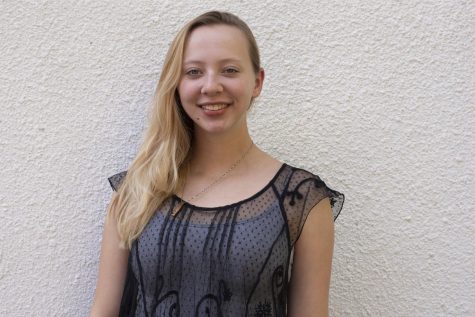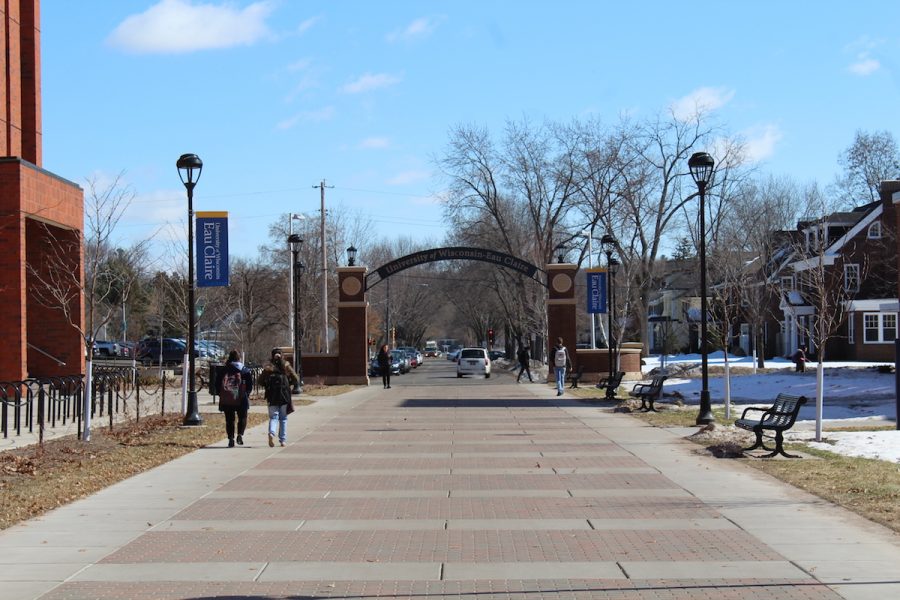Chancellor establishes new sustainability task force
The Sustainability and Climate Action Task Force searches for members
Photo by Madeline Fuerstenberg
Chancellor James Schmidt has ordered the implementation of a new Sustainability and Climate Action Task Force.
In an email sent out to faculty, staff and students on Feb. 25, Schmidt announced the intentions of the task force and encouraged members of the UW-Eau Claire campus community to join.
“Our core university values include ‘stewardship and sustainability’,” Schmidt wrote in the email. “While we have undertaken numerous sustainability activities over the years, we now have an opportunity to create a more defined plan to incorporate stewardship, sustainability and resiliency into all facets of campus life and to achieve our commitment to become carbon neutral by the year 2050.”
Schmidt said the SCATF would be tasked with meeting throughout the semester with the goal to develop “specific, actionable recommendations for sustainability that can be incorporated into our 2025 University and academic plans, as well as the Campus Facilities Master Plan.”
The report should be completed and submitted by May 15, Schmidt wrote.
Schmidt told the Spectator that the work completed by the SCATF would be funneled into the university’s broader strategic plan.
This would include an assessment of where the university is at now in terms of sustainability and suggestions as to how the university could reach its goal of being carbon neutral by 2050.
The task force would need to examine the energy efficiency of campus buildings, the carbon footprint created by people commuting to and from campus and the overall carbon footprint generated by university travel to conferences or through study abroad programs, Schmidt said.
“The real work is in those first few years,” Schmidt said. “I believe we can have a far bigger impact if we work together.”
Near the end of 2019, Schmidt said, the City of Eau Claire also set a goal of becoming carbon neutral by 2050, motivating the university to do the same.
Because of the overlapping interests of the city and the university, Schmidt said the SCATF will include city staff and representatives from Xcel Energy.
Lauran Becker, a third-year geography student and director of the Student Office of Sustainability, said the SOS was a driving force behind the creation of the SCATF, though it will not play a direct role in the task force’s responsibilities.
“In order to address global sustainability, we must normalize practices that take into consideration the larger picture, a thought that inherently is based in (equity, diversity and inclusivity),” Becker said in an email. “Change is made within our learning spaces — and what better spaces to craft culture than our public institutions within Wisconsin, that value public service and public health? We are dealing with a crisis, the likes of which we haven’t seen before, we must act. Even better, we must lead.”
Travis DuChene, a third-year political science education student and member of Student Senate, said sustainable practices have become an important part of his college career.
He was a member of Sustainability LLC in Sutherland Hall during his first year at the university and he helped organize the Eau Claire Climate Strike and march to City Hall that occurred on Sept. 20, 2019.
DuChene said he has some doubts about the effectiveness of the task force. While he commended the general goals of the SCATF and the work done by the SOS, he said the work done thus far has not been centralized.
He said it is his hope that the task force will allow for more communication between various departments.
“This task force empowers students, faculty and staff by allowing them to innovate within their departments and expand successful programs to larger sections of the university,” DuChene said in an email. “The charge calls for the group to focus on investing in projects that are attainable both fiscally and logistically. This will be important so that we can implement practices that drive us to achieve our carbon neutrality goal by 2050. Lastly, the task force calls for the collaboration with our stakeholders in our surrounding community so that we can grow together and provide leadership to the region.”
DuChene said there are two things he would like to see the task force accomplish.
First, he said it should cultivate and maintain a campus culture that includes sustainable practices.
Second, DuChene said the task force should develop a university resiliency plan that focuses on implementing sustainable practices within the campus and surrounding community.
“Everyone should care about sustainability and climate action because the threat of global climate change is real and imminent,” DuChene said. “We are already seeing serious changes to our ecosystems that will only continue to worsen unless intentional and drastic changes are made to reduce our CO2 emissions and material waste. Universities have an especially important role in the process of establishing sustainable practices because of their connection with their communities and their ability to shape culture.”
Fuerstenberg can be reached at fuerstmm8073@uwec.edu.

Madeline Fuerstenberg is a fourth-year journalism student. This is her eighth semester on The Spectator staff and she’ll miss it with all her heart once she graduates (if she graduates).


